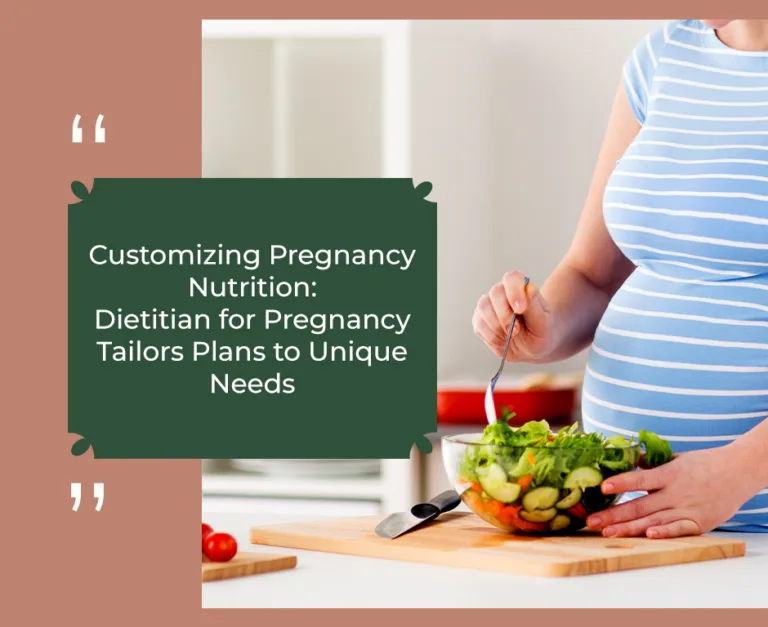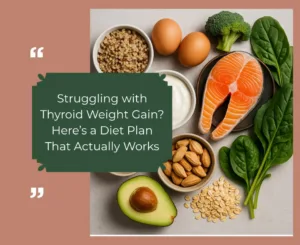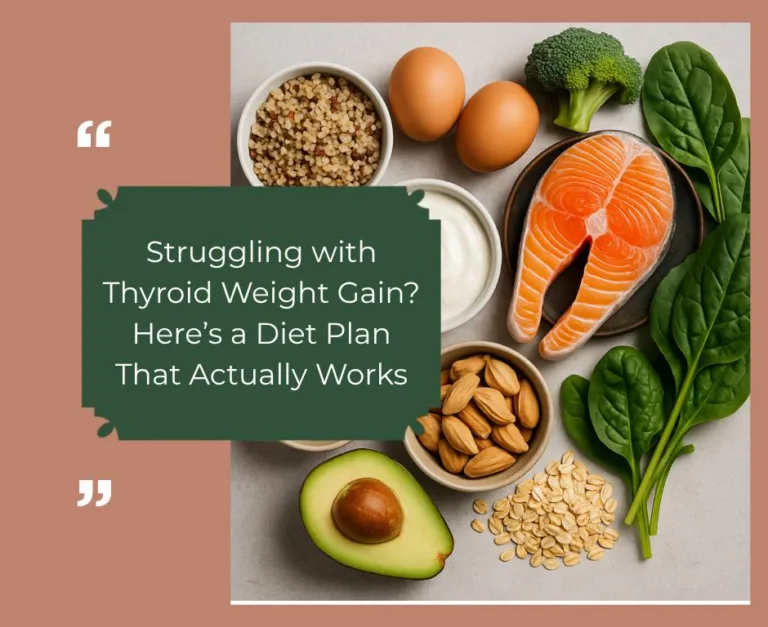Each pregnancy is a unique experience in a woman’s life that permanently alters her body. This change requires careful attention to lifestyle, especially diet, to meet the nutritional needs of both the mother and the baby. A nutritionist for pregnant women can play a crucial role in guiding you through this change. In this blog, as a dietitian for pregnant women, let me help you take a more personalized approach to your nutrition.
Understanding the Role of a Dietitian for Pregnancy
A dietitian for pregnancy has specialized expertise that can be exceptionally helpful during this stage of life. They provide guidance on what to eat, what to avoid, and how to balance different food groups or ingredients in a way that best supports the mother and baby. This can help you navigate various pregnancy-related issues such as morning sickness, nutritional deficiencies, and gestational diabetes.
The Importance of Personalized Nutrition
Every pregnancy is unique, making the nutritional needs just as individualized. A nutritionist for pregnant women considers various factors such as the mother’s age, weight, health status, lifestyle, dietary preferences, food aversions due to pregnancy, and other medical conditions to create a customized nutrition plan. This approach ensures the right balance of nutrients for the progress of pregnancy.
Important Nutrients for a Healthy Pregnancy
1. Folic Acid: Folic acid, also known as vitamin B9 and folate, is crucial for the baby’s neural tube development, which later forms the brain and spinal cord. Leafy greens, citrus fruits, legumes, and fortified foods like bread and pasta are all excellent choices to meet your folic acid requirements.
2. Iron: Any nutritionist for pregnant women would recommend iron-rich foods as iron is needed to accommodate increased oxygen supply needs. Iron-rich foods include leafy greens, lean meats, beans, etc.
3. Calcium: Calcium is required to maintain the mother’s bone and teeth health as well as the baby’s. Dairy products, fortified plant milks (almond, soy, oat milk, to name a few), and leafy greens are great food groups for calcium intake.
4. Omega-3 Fatty Acids: Fatty acids are essential for hormones to function properly and are vital for a baby’s brain development. Omega-3 rich foods include fish, flaxseeds, walnuts, and seed oils.
Managing Pregnancy Symptoms Through Diet
Pregnancy comes with its share of discomforts, such as nausea, constipation, heartburn, and sudden development of allergies. A dietitian for pregnancy can provide dietary plans that can alleviate these symptoms completely or at least ease them. For instance, small, frequent meals are recommended to manage nausea. A nutritionist for pregnancy can also suggest foods that help with heartburn and other digestive issues.
Addressing Special Dietary Needs
Some pregnant women may have special requirements due to allergies, intolerances, or preferences for vegan or vegetarian diets. A dietitian for pregnancy is equipped to handle these requirements, ensuring proper nutritional balance while adhering to dietary restrictions.
Monitoring and Adjusting the Nutrition Plan
Throughout the progress of pregnancy, nutritional needs change. A nutritionist for pregnant women will monitor these changes and adjust your diet accordingly for optimum health. This may involve increasing caloric intake, supplementing some nutrients, or introducing new dishes. A tailored diet plan during pregnancy is vital for the health and well-being of both mother and baby. A dietitian for pregnancy offers expert advice and personalized plans to meet your specific needs. Embracing this expert opinion is beneficial not only for your physical health but also for your mental health, as you can rest assured that you are taking the right steps for a healthy future.

























